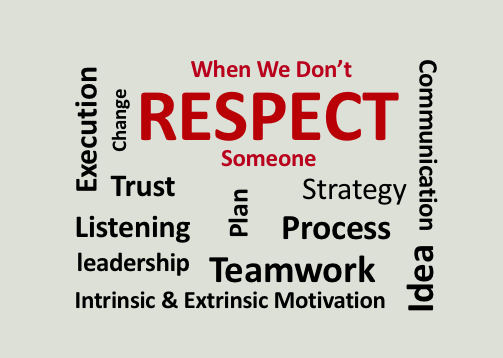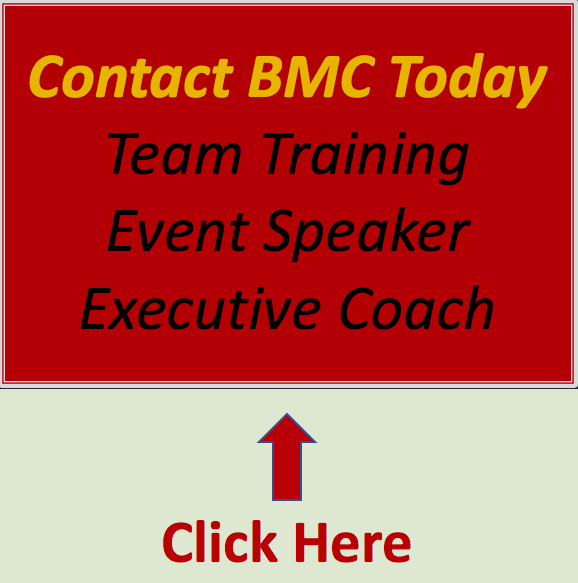Soft Skills: Not A Vulnerability
/You don’t want to be treated as a number. You don’t want to be ignored. You don’t want to feel invisible and lumped in with the rest of ‘the pack’.
You want opportunities to be your best and treated with kindness. You want to reach your goals and dreams, to grow. You want your uniqueness and potential to be noticed, respected… and used. And all of this makes sense so don’t let anyone tell you or make you feel you shouldn’t want this or that you don’t deserve this. You do. We all do.
I believe we can all remember a time when we were lumped in with others and not seen for our full potential. And, I’m sure we can all also remember what it felt like when someone respected our expertise, saw us for our potential, and gave us an amazing opportunity. When that happened to you I bet you were eager to work hard and rise to the occasion because you wanted to honour them… and yourself.
You and I just proved why soft skills and helping others feel proud or accomplished is not a vulnerability – if anything it is a superpower. Whether it’s your children, your partner, your co-worker or the employee who reports to you, when you are clear with your expectations, offer opportunities for them to reach their dreams, give them a chance to learn, grow, and be noticed… you are using what most people would call soft skills and what many people also call leadership skills, people skills or human skills. And, when you care about other people, learn from them and are open to the possibility to change your mind… you are still using your soft skills.
Soft Skills: One of The Best Resources of a Leader.
I can’t think of a job today that doesn’t need people to help each other, trust each other, find consensus, learn from each other and even forgive each other. Even the people who support and supervise the self-check-out area of our grocery stores need to have these qualities. And just a personal question here – is it just me or do these who work the self-check-out spaces people seem like they are enjoying their job more than usual? My guess is because they feel a sense of autonomy and flexibility as they get to interact with people – not just their groceries.
More than ever we all want to be treated with kindness and respect – even if we are introverted and our definition of kindness and respect is being left alone at the self-check-out area of the grocery store. Yes, the spotlight on soft skills has never been more intense and important for everyone.
Respect may be the most important soft skill since in many ways respect opens the door for other skills including honesty, curiosity, and feeling we can safely ask questions, learn and grow.
If we respect each other, we should be able to keep ourselves from imposing our beliefs onto each other. Instead, respect should allow us to share our beliefs and have an open discussion. And when we respect each other, we must accept that the things that inspires each of us and make us proud can also be – must also be as different as our skillset, our background, in the same way our personal preferences around coriander (I like it) and horror movies (I don’t like them) may be different.
Embracing soft skills isn’t about kindness and being nice. Embracing your soft skills is about being clear with shared expectations, holding others – and ourselves accountable, being honest, seeing other people for who they are and who they want to be, and allowing others to ‘see’ you.
Soft Skills: In a Hybrid or Remote Work Environment
As most companies and positions shift to remote or a hybrid work models, the focus and importance on soft skills has grown in its importance, often being weighed equal to technical skills. Why? Because in many cases – even in careers that are highly technical, it is more critical than ever that we work together which requires us to be patient, inspire each other, and communicate respectfully.
Don’t just take my word for it. According to Rohan Rajiv, Director of Product Management at LinkedIn, “Foundational soft skills have become even more important given the rise of remote and autonomous work, and are growing in importance across industries, levels and work environments. In fact, these soft skills were featured in 78% of jobs posted globally over the last three months.”
There is no doubt as more and more of us work remote and we become more geographically disconnected from the people who most of us work most often with (our teammates), soft skills like our communication skills, trust in our ability to manage each other’s expectations and our shared respect for each other and our work only becomes more important.
Soft Skills: Conclusion
So yes, embracing your soft skills is not a vulnerability. But one last point – as a soft skill my self-respect for myself lets me know I’m not perfect… and that I am still OK and important. My self-respect also lets me know I can learn and evolve and that even though change may be scary, it is also an opportunity to embrace adaptability and resilience, two more characteristics of highly successful teams and organizations.
Our personal and professional success depends on our individual and shared responsibility to invest in ourselves and each other. Our investment into each other and our company’s investment into us is the key building a highly engaged, wonderfully loyal and decidingly creative workforce that is dedicated to excellence and delivering outstanding products and services to your customer.
Thank you for reading about Soft Skills: Not A Vulnerability. I know - it was a long post. I look forward to hearing from you if you have any questions.
Bruce
Other articles in this series include:
About Bruce and Bruce Mayhew Consulting.
Bruce is Corporate Trainer, Keynote Speaker and Executive Coach.
Bruce Mayhew Consulting specializes in customized Difficult Conversations, Crucial Conversations or Conflict Management Training, Email Etiquette Training, Leadership & New Leadership Development, Generational Differences, Time Management Training and other soft skills training solutions in Toronto and across Canada. Bruce is also an Executive Coach to a few select clients.
Bruce is an experienced motivational speaker in Toronto and has inspired audiences across Canada and within the USA and the UK. Bruce works hard to always make sure your training event, conference, retreat, or annual general meeting is a success.





